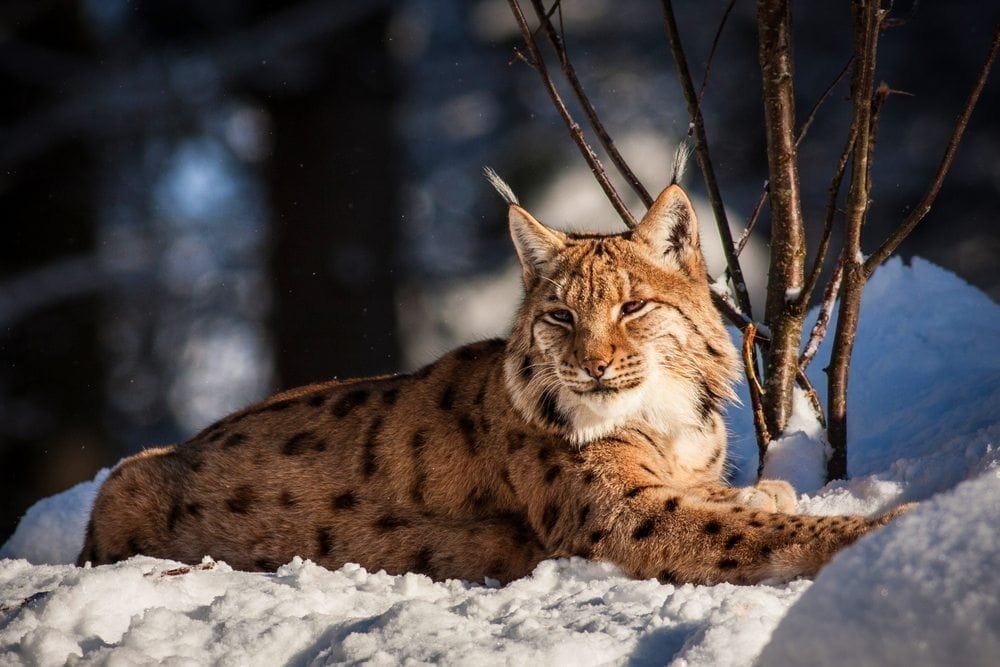The lynx has been extinct in Britain for more than 1,300 years, but reintroducing this species to the UK could generate total net benefits of £68 million over a 25-year period, according to a report produced by AECOM for the Lynx UK Trust.
This equates to £47 of estimated benefit for every £1 spent on managing the reintroduction of these big cats. Revenue from tourism alone is expected to reach £65.7 million over 25 years, providing sustained job creation in rural communities.
Trial programmes
The AECOM cost-benefit analysis was published in tandem with the launch of the Lynx UK Trust’s national stakeholder consultation, which will run until the new year.
The Lynx UK Trust is proposing a trial programme to reintroduce Eurasian lynx at several potential sites in the UK for an initial five-year period.
The AECOM report examines the potential costs, as well as the social, environmental and economic benefits, of a lynx reintroduction scheme at two proposed sites: Kielder Forest in Northumberland and Thetford Forest on the border of Norfolk and Suffolk.
A ‘compelling’ case
The economic benefits take into account the £1.4 million in costs over a 25-year period – £724,000 per site – of administering the reintroduction programme.
‘Our cost-benefit analysis shows that the argument for reintroducing lynx to the UK is compelling from an economic, social and environmental perspective.
‘At a time when the UK needs to think laterally and creatively to realise economic benefits, this is an idea worth exploring, particularly due to the potential ecotourism and job opportunities in rural communities.’
Chris White, senior environmental economist at AECOM
The Eurasian lynx
The Eurasian lynx was the largest species of wild cat in Britain for more than 10,000 years, dying out as civilisations grew more advanced and human activities such as deforestation, hunting and trapping became common practice.
Wild lynx have been extinct in Britain for more than 1,300 years. Although they have disappeared from the UK, lynx can still be found in Western Europe, Russia and Central Asia.
They live in woodlands, hunt deer and are highly elusive. Adults vary in size from 80–130 cm in length (up to 70 cm at the shoulder) and can weigh 18–30 kg.
 Play Video about This Rock Might Just Save The World
Play Video about This Rock Might Just Save The World Play Video about Play 2 hours of rock
Play Video about Play 2 hours of rock Play Video about Play 2 hours of brook
Play Video about Play 2 hours of brook Play Video about Play 2 hours of sheep
Play Video about Play 2 hours of sheep











































